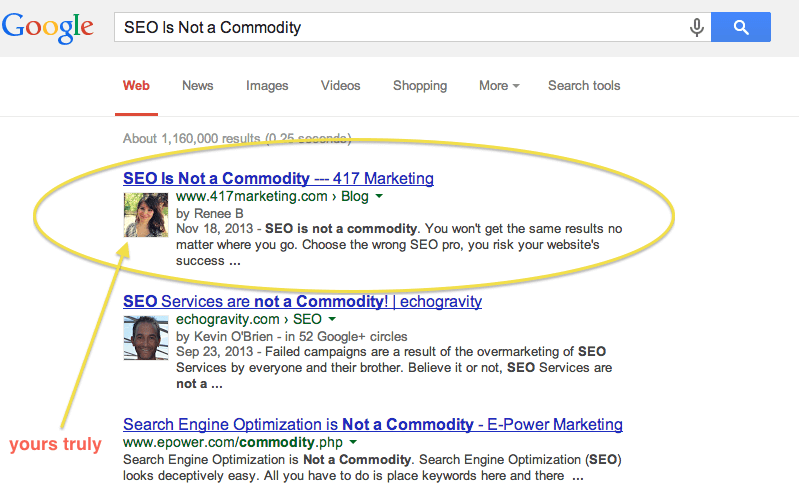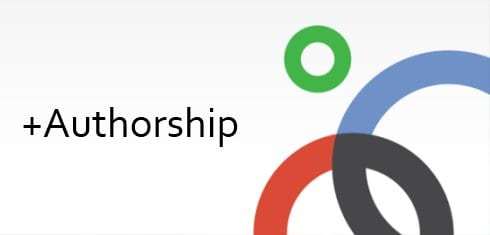UPDATE: Google Authorship is no longer supported in web search. The program ended in August 2014.
Since Google Authorship was introduced a few years ago, many people have applauded the program. With just a few easy steps, writers are able to establish their authorship of a webpage. When Google chooses to use that authorship markup in their search results, a picture of the author appears next to the link along with the author’s name and a link to his or her other work. Google Authorship allows writers to claim their content and gives search results more credibility. Plus, search engine users appreciate being able to identify noteworthy or favored authors, and websites appreciate the increase in traffic they get with results that feature authorship.

However, in recent weeks, you may have noticed some Google Authorship changes. Fewer search results are displaying authorship markup information. So what’s up? you might be asking. What happened? Where have all the authors gone?

Google Authorship Changes
According to Moz.com, there has been a recent and notable reduction in the number of search results that feature authorship mark-up. The site’s research was conducted from November 22 until December 21 and revealed a significant drop in searches showing authorship (23.5% at the start, 20.3% at the end). It was a 15% relative drop.
The changes aren’t completely shocking if you follow SEO news updates. In October, the month before the study, the head of Google’s web spam team, Matt Cutts, said that reducing authorship by 10-15% seemed to improve search quality. Many SEOs understood this to mean that Google already had reduced the searches showing authorship or was planning to do so soon. It appears they were right.
Because Moz.com’s data was compiled using an all-or-nothing approach, we can conclude one of two different things. Either less searches are displaying authorship mark-up overall (idea #1) or when searches do display authorship mark-up, fewer results are marked-up (idea #2). Based on Moz’s data, the first statement is more true. When searches display authorship in their results, the mean number of marked-up results dropped only slightly (1.326 to 1.305). So most searches produce one result that displays authorship. This was true before we noticed these Google authorship changes and it is still true now.

What Does This Mean?
So how should we react to these Google authorship changes? What does it all mean?
First of all, it is not unlikely that one of your most important search terms has lost authorship mark-up in the past couple of months. However, it is also possible that your search terms gained authorship mark-up. Overall authorship mark-up was reduced, but you won’t see reduction across the board. Don’t assume the worst.
If your search terms did lose authorship mark-up, take it in stride. Google is simply trying to better their search results by reducing the prominence of authorship and raising their standards. If you want your links to have authorship again, you might try enhancing your link profile, garnering social media mentions, and generally improving your individual authority online.
Remember that Google+ is just a baby and the search engine is still figuring out the best way to raise it. Don’t let yourself be completely rattled by these Google authorship changes. Although they have some significance, they’re not a game-changer.


